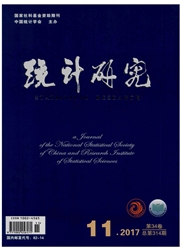

 中文摘要:
中文摘要:
本文利用国家统计局城镇住户调查数据对2002—2007年城镇居民收入不平等进行了研究。研究发现:①基尼系数先上升后下降。②房地产和资本市场扩大城镇居民收入不平等的作用日益增强,财产性收入已成为仅次于工资及补贴收入、公共转移支付净收入,影响收入不平等的第三大分项收入,2007年的贡献率约为7.3%。③更高的投资门槛以及持续上涨的房价使得房产投资比金融资产投资更能扩大城镇居民收入差距。
 英文摘要:
英文摘要:
The paper investigates income inequality in urban China by using 2002—2007 UHS datasets.It finds that:(1) The Gini coefficient rose first and then fell,and it's 0.342,0.361 and 0.349 for 2002,2004 and 2007 separately.(2) The effects of real estate market and finance market on enlarging income inequality are increasingly stronger.Income from wealth has become the third important factor affecting income inequality,whose effects are just inferior to those of wage income and net public transfer income,and its contribution rate has arrived at 7.3% in 2007.(3) Real estate investments can enlarge income inequality more greatly than finance investments because of the higher investment threshold and the lasting rise of house prices.
 同期刊论文项目
同期刊论文项目
 同项目期刊论文
同项目期刊论文
 期刊信息
期刊信息
